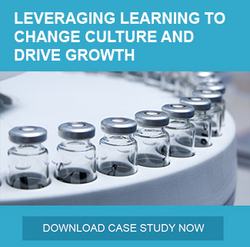 So what’s the goal of this story?
So what’s the goal of this story?Okay, so there’s a question you don’t often get when discussing novels or plays. What’s the goal? Well, the goal is to get to the last page of the book, or the curtain call at the end of the play. But when you’re writing stories for learning, the question takes on a different meaning. Not only are you telling a great story, you’re supposed to be helping your learner improve his or her performance.
Great learning stories include Goal-Based Scenarios. In simplest terms, the story includes a goal or a set of goals that need to be achieved; the point of going through the story is to achieve the goal. That sounds simple enough, but here’s the key: the nature of the goal impacts the way you perceive the story. Confused? Let’s break it down.
- First and foremost, the goal of learning is not just to make you smarter; the goal is to help you build the ability to do something. A Goal-Based Scenario begins to answer to eternal question of performance improvement: what am I going to be able to do as a result of this effort? Why is it important that I’m able to do this?
- In the business world, almost everything we do has a goal. Why should our business learning be any different? What kinds of problems can I solve with this knowledge?
- Ultimately, storytelling for learning works best when it presents real life conflicts. It can be pretty easy to regurgitate the “right” way to handle a problem, but can you really do it under pressure? You need to recreate that pressure for the learning to have emotional impact—and Goal-Based Scenarios do that. Rather than applying learning in a vacuum, you’re attempting to solve a real business problem—and actually having to apply what you’ve learned.
So how do you create a Goal-Based Scenario? In order to create good story-based learning, you need to be consultative. You need to understand the subtleties of the job and challenges your learners face in achieving success. For example, if I’m learning selling skills, my ultimate goal is probably to close a sale. But what are the subtleties of effectively closing? Is my customer more likely to buy if I take one path over another? Will I sell more if I’m able to meet my customer’s boss, who has more buying authority? Will I sell more long-term if I’m able to build a good relationship? Am I afraid to talk too much for fear my customer will realize I don’t know as much as I claim to know?
If you’d like to know more about Goal-Based Scenarios, here are a few references:
http://www.eduweb.com/goalbasedscenarios.html
http://www.edtech.vt.edu/edtech/id/models/gbs.html
http://www.engines4ed.org/hyperbook/nodes/NODE-227-pg.html


